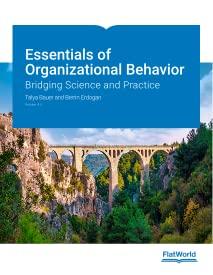Brew Dr. Kombucha and Tea, formerly known as Townshend's Tea Company, was founded in 2006 with the
Question:
Brew Dr. Kombucha and Tea, formerly known as Townshend's Tea Company, was founded in 2006 with the vision of creating a tea culture in the United States. In 2008, the company began producing kombucha (a beverage made out of fermented sweet tea) under the brand Brew Dr. Kombucha. While both brands, which are jointly operated, are growing, sales of Brew Dr. Kombucha account for the majority of the company's business with a distribution network across the U.S., Canada, Mexico, and multiple countries in Europe. When it comes to tea, the company focuses on sustainable and fair practices. As their website notes about how they source their tea, "The world's most meticulous and well-traveled tea buyers are able to form on-the-ground relationships with the families who farm and produce our teas. Each of them specializes in a particular region, and then imports the tea directly to us. Having a trusted partner directly at the source insures that not only are our teas abundantly flavorful, but that tea producers are treated fairly for their trade." Since its inception, Brew Dr. Kombucha and Tea has emphasized community development and environmental sustainability as core components of its business model so much so that its management embraced the opportunity to formalize these principles through "B Corp certification." B Corps are for-profit companies that are certified by the nonprofit B Lab if they meet rigorous standards of social and environmental performance, accountability, and transparency; they strive to use the power of markets to help solve social and environmental problems. Certification is recognition of a philosophy and actions taken by any organization regardless of how it is formed.
It is voluntary and can be changed at any time. Over 2,000 Certified B Corps exist in 50 countries in 130 industries. Many of these companies are small- to medium-sized organizations, which is where much of the growth in this type of company has emerged. Certification is independent, third-party, and consists of an application of 170 questions covering such aspects of the business as energy efficiency and employee programs and practices. A total of 200 points is possible, but the certification does not expect that any company will ever be able to achieve a perfect score. In fact, a score of 80 points is enough to become certified. Notable companies with B Corp certification include Ben & Jerry's (the first wholly owned subsidiary to become certified) and Kickstarter. Natura, a Brazilian cosmetics company, became the first publicly traded Certified B Corp in 2014. Beyond those companies that formally apply for certification, over 40,000 organizations use the free self-assessment tool available at http://bimpactassessment.net to help them benchmark their social and environmental impact.
Upon initially completing the impact assessment in early 2017, Brew Dr. Kombucha and Tea was just shy of meeting the performance requirement set forth by B Lab to become certified. The responsibilities associated with completing the first assessment had fallen on two members of the management team. To ensure broader organizational buy-in, as well as accuracy in completing the assessment, Brew Dr. Kombucha and Tea convened a team of nearly 30 employees to conduct a comprehensive review of the impact assessment in late 2017. This self-selected group of employees was organized into subcommittees focused on the four B Corp impact areas: governance, workers, community, and environment. Employees were assigned a question or questions from their respective impact areas to review in greater detail. They were then tasked with providing recommendations around operational changes that would lead to an improved impact assessment score.
The number of employees who volunteered to assist with this project and the enthusiasm with which they approached the project was a testament to Brew Dr. Kombucha and Tea's culture of transparency and participation. Each employee who volunteered was passionate about building upon the values they had come to appreciate in their organization and reinforcing them by formalizing previously informal processes and procedures. For example, in developing an Environmentally Sustainable Purchasing Policy, a member of the environment subcommittee sought to set a standard of sustainable procurement of goods and demonstrate the company's commitment to environmental, economic, and social stewardship by providing employees with clear and consistent instructions on how to consider and purchase supplies and services. Previously, employees had been encouraged to purchase sustainable alternatives when given the option, but no policy had been created to ensure this was the norm. Thus the pursuit of B Corp certification provided a unique opportunity to embed some of these behaviors into the DNA of the company to ensure continued alignment with founding values as the company grows.
Brew Dr. Kombucha and Tea provides one example of organizational change inspired by a desire to formally adhere to principles of sustainability and social good. The changes were made even more meaningful by the inclusion of its employees in the assessment and implementation processes. Moreover, the employees tasked with driving this organizational change were motivated by the potential to establish a framework under which the company could grow ethically and responsibly for generations of employees to come.[54]
Questions
1. If you were a Brew Dr. employee, would you have volunteered to assist with the B Corp assessment? Why or why not?
2. What are some pros and cons of including employees in organizational change management?
3. Can you think of some ways the pursuit of B Corp certification might lead to organizational change, even for a company that already embodies sustainability and social good?
4. Imagine that you are a manager at a young and rapidly growing company like Brew Dr., and you are interested in acquiring a B Corp certification for your firm. How would you go about implementing any necessary change? What steps would you follow before, during, and after the change?
5. How do you think the pursuit of B Corp certification might impact an organization’s bottom line? Please explain.
Step by Step Answer:

Essentials Of Organizational Behavior Bridging Science And Practice
ISBN: 9781453339244
1st Edition
Authors: Talya Bauer, Berrin Erdogan





